
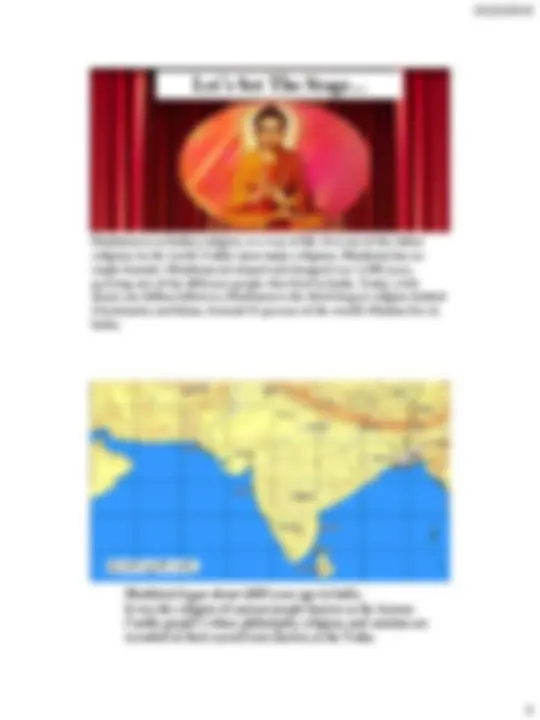
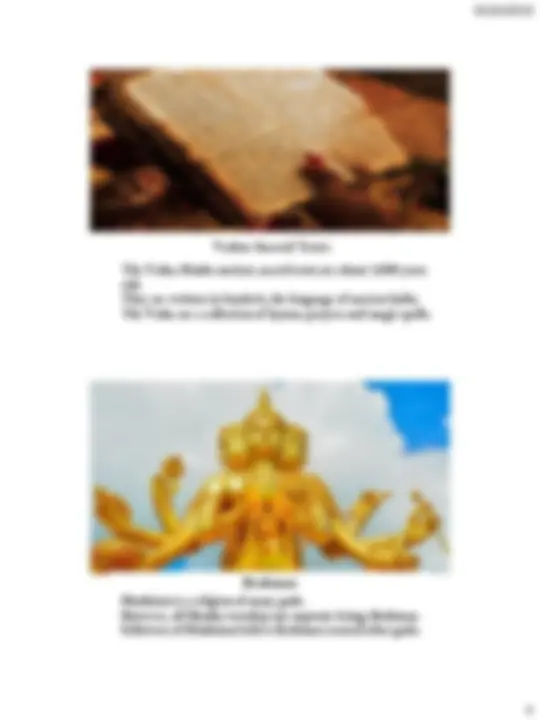
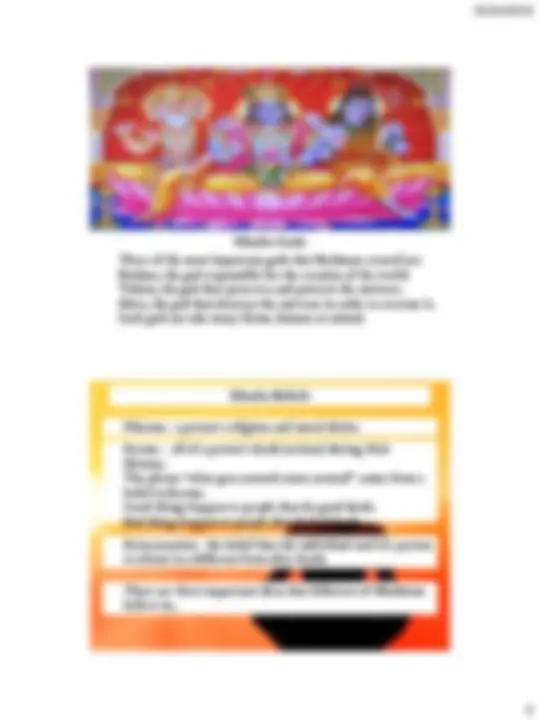
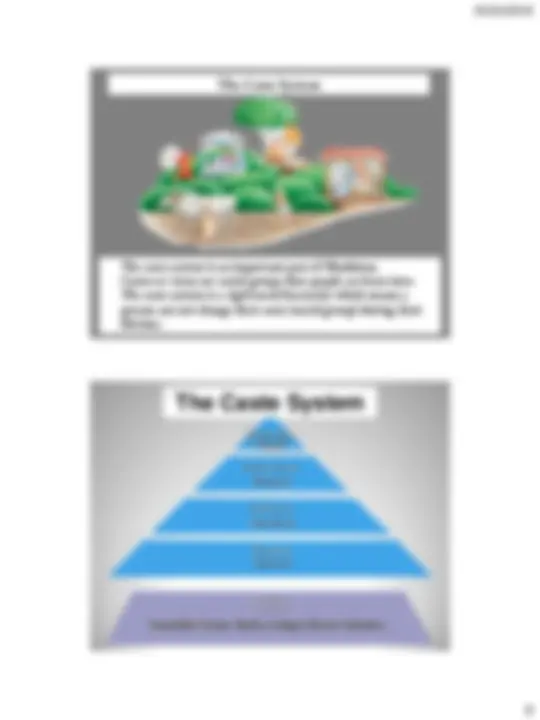
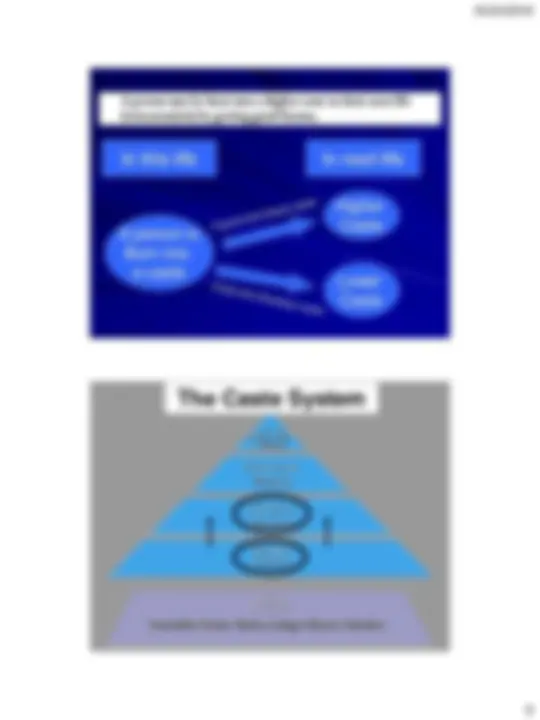



Study with the several resources on Docsity

Earn points by helping other students or get them with a premium plan


Prepare for your exams
Study with the several resources on Docsity

Earn points to download
Earn points by helping other students or get them with a premium plan
Community
Ask the community for help and clear up your study doubts
Discover the best universities in your country according to Docsity users
Free resources
Download our free guides on studying techniques, anxiety management strategies, and thesis advice from Docsity tutors
An overview of Hinduism, one of the oldest and most practiced religions in the world. It covers the origins of Hinduism, the role of sacred texts, the concept of gods and the supreme being Brahman, important beliefs such as Dharma, Karma, and Reincarnation, and the caste system.
What you will learn
Typology: Lecture notes
1 / 10

This page cannot be seen from the preview
Don't miss anything!







Hinduism – the religion of ancient people known as the Aryans ("noble people") which began 4,000 years ago. Sanskrit – the ancient language of Hinduism. Dharma - a person's religious and moral duties. Karma – all of a person’s deeds (actions) during their lifetime. Moksha - ultimate goal of all Hindus, to obtain union (be one) with Brahman. Ahimsa - non-violence towards all living things.
Castes or varna - social groups (classes) that people are born into. Social Hierarchy – a system to divide people by social group (class), also called a Caste System. Reincarnation - the belief that the individual soul of a person is reborn in a different form after death.
The Vedas, Hindu ancient, sacred texts are about 3,000 years old. They are written in Sanskrit, the language of ancient India. The Vedas are a collection of hymns, prayers and magic spells.
Hinduism is a religion of many gods. However, all Hindus worship one supreme being; Brahman. Followers of Hinduism believe Brahman created other gods.
Three of the most important gods that Brahman created are: Brahma, the god responsible for the creation of the world. Vishnu, the god that preserves and protects the universe. Shiva, the god that destroys the universe in order to recreate it. Each god can take many forms, human or animal. There are three important ideas that followers of Hinduism believe in..
Dharma - a person's religious and moral duties. Karma – all of a person’s deeds (actions) during their lifetime. The phrase “what goes around comes around” comes from a belief in Karma. Good things happen to people that do good deeds. Bad things happen to people that do bad deeds. Reincarnation - the belief that the individual soul of a person is reborn in a different form after death.
The caste system is an important part of Hinduism. Castes or varna are social groups that people are born into. The caste system is a rigid social hierarchy which means a person can not change their caste (social group) during their lifetime.
The Caste System
Hinduism began about 4000 years ago in India. Hinduism is a religion of many gods. However, all Hindus worship one supreme being; Brahman. One of the unique (special) beliefs in Hinduism is that God is not up in heaven, but instead is inside each and every soul (person), waiting to be discovered. What are the beliefs of Hinduism? Dharma, Karma and reincarnation are three important ideas that followers of Hinduism believe in. The caste system is an important part of Hinduism. Castes are social groups that people are born into. A person can not change their caste during their lifetime. What are the beliefs of Hinduism?